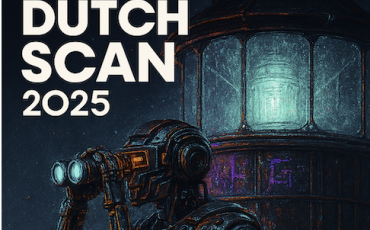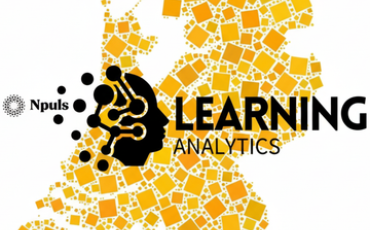Statement 1: "Summative assessment of one's output from an uncontrolled testing environment (a text, outcome of a sum, programming code or a drawing) is no longer an appropriate method of measurement."
Start the dialoge with students
Erdinç Saçan, ICT Lecturer at Fontys University of Applied Sciences, stresses the importance of meaningful dialogue with students. He says: "We need to stop reviewing students' work. It's all about meaningful dialogue. I think we should embrace ChatGPT." Ludo van Meeuwen, Program Manager and Strategic Policy Advisor at Eindhoven University of Technology, agrees and stresses that the learning process is more important than the final product itself. He points out that an extra classmate has been added to the classroom.
The learning process is more important
Barend Last, educationist and author of two books on blended learning, argues that giving only summative tests is no longer tenable. The educationist says that focusing on the student's learning process is important: "We need to focus more on students forming their own opinions and less on performance." Erdinç stresses that techniques such as ChatGPT are meant to make life easier. Barend adds: "During the learning process, students can use ChatGPT to write examples and summaries. New possibilities of testing are emerging and we need to explore those together."
Questioning is the new answering
Erdinç responds, "ChatGPT can program very well. We as HBO-ICT education need to start thinking again about the profession of prompt-engineer. Techno philosopher Rens van der Vorst put it nicely: "Questioning is the new answering." You need knowledge to ask the right question to ChatGPT."
Ludo calls for the debate on the impact of AI on our education. He wonders, "If an essay can be generated automatically, why do you still make someone write an essay? Ultimately, it's about the learning process and that process includes AI. Educators need to engage in this discussion."
Statement 2: "ChatGPT offers an awful lot of opportunities to enrich the learning process with new features."
Saving time with ChatGPT
Barend is happy with the saving time feature ChatGPT brings to teachers. He says: "Everything is easier: grading, thinking up work formats, working out assessments, formulating learning objectives, sharpening learning outcomes. You can use the time you have left for personal attention for the student." Ludo stresses that ChatGPT is also a real supporter for students and that institutions should mark the technology as high priority on the agenda.
Shy students and ChatGPT
Erdinç is enthusiastic about ChatGPT. He uses it daily and says it is a great help for lecturers and students. The teacher goes on to say, "ChatGPT is fantastic. I have students on the autistic spectrum who do not dare to ask questions to a fellow student or to a teacher. Shy students chat with ChatGPT to get answers to their questions."
Quality standard goes up
Ludo cites an example from the history of technology: "Take the vacuum cleaner, did it make life easier? Yes! But the quality standard for hygiene also went up. I really hope we are now taking the next step with the quality of education. I used to think, "What should we do with a drone? Another new toy." By now, we all know what is possible. Inventing those possibilities is a creative process."
The 3 most important questions from the chat
Question 1: "I am curious about how we can use ChatGPT to our advantage, for example for alternative assessment. What ideas do you have about alternative assessment, could ChatGPT be a tool for students?" (Stefan Jongen (UM))
Ludo says: "Education is finally being forced to look at higher-order skills." The discussion on this should start taking place between program directors and lecturers. "Students stand on shoulders of giants," Ludo continues.
Barend stresses, "Tests are not separate from the learning process. ChatGPT threatens education only if summative testing is the end station of the learning process. If we see testing as part of the learning process, it creates space for new forms of testing that we need to explore together."
Question 2: "Aren't you worried about writing skills?" (anonymous)
Ludo takes a skeptical optimism look at this problem: "We have been worried about it for 25 years, actually since we started typing." Barend is also not worried about students' writing skills: "One of the most important tips about learning to be a good writer, is to read a lot."
Question 3: "Do we need to start changing things in education on short term?" (anonymous)
Erdinç says: "It is good to include one extra sentence as an exam board: 'ChatGPT should not be used to create products.'" Ludo advises exam boards to be proactive and take on a safeguarding role around making education 'ChatGPT-proof'. Ludo stresses, "Make sure teachers, students, policy staff and program directors start the conversation with each other about ChatGPT. Share the creativity about what is possible. And share the great examples between institutions."
The possibilities of AI
That AI is playing a big role in education is clear. It offers new possibilities and can support teachers and students. It is important to engage in dialogue about ChatGPT. And to keep looking for ways to responsibly integrate this technology into education. The focus on the student learning process remains important in this regard.
What is SURF's role?
SURF provides technical expertise on AI and Large Language Models like ChatGPT. In addition, SURF provides a platform for discussion and mutual knowledge exchange. Events are organised for ChatGPT and other topics to keep the community, and SURF, up-to-date with current developments.
Want to know more about AI in education?
Then join the Special Interest Group AI in education: https://communities.surf.nl/ai-in-education
Read more about the technology behind ChatGPT and how it works in ChatGPT: https://communities.surf.nl/ai-in-education/artikel/chatgpt-the-revolut…
Save the date: Follow-up event on the impact of ChatGPT in Utrecht on Friday 3 March 15:00-17:00.



0 Praat mee